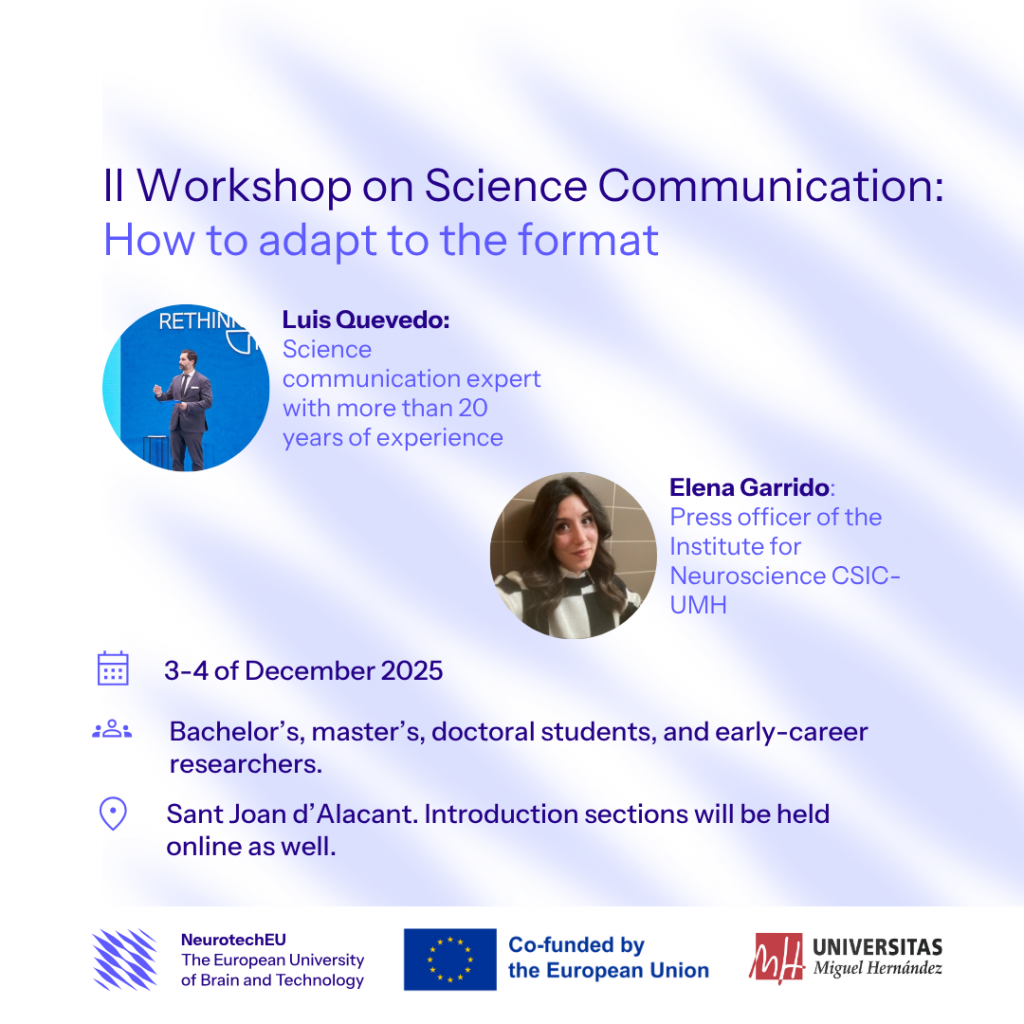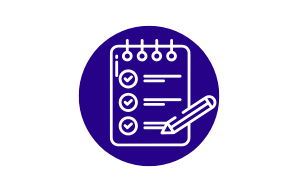UMH II Workshop on Science Communication: How to adapt to the format
UMH activities, UMH Synapses Club
19 November 2025
 Speaking in public can be a challenge, and condensing your research into an Instagram carousel can feel like a lot of information is being omitted. However, there are key aspects that can help you prepare for these challenges: who your audience is, what level of detail you want to include, and what language to use at each publication. On December 3rd and 4th, Luis Quevedo and Elena Garrido, scientific communication experts, will offer tools on how to adapt scientific content to two completely different formats: the oral format and social media.
Speaking in public can be a challenge, and condensing your research into an Instagram carousel can feel like a lot of information is being omitted. However, there are key aspects that can help you prepare for these challenges: who your audience is, what level of detail you want to include, and what language to use at each publication. On December 3rd and 4th, Luis Quevedo and Elena Garrido, scientific communication experts, will offer tools on how to adapt scientific content to two completely different formats: the oral format and social media.
Luis Quevedo brings over 20 years of experience in media in the United States, Latin America, and Spain. Without limiting himself to a single format, Quevedo has worked in television, radio, and digital media, always bringing science to the public in an accessible and clear way. Thus, with his extensive experience, he will be responsible for explaining the textual and on-camera work that accompanies oral communication.
For her part, the expert in scientific and institutional communication and Head of Communication, Press, and Outreach at the CSIC-UMH Institute of Neurosciences, Elena Garrido, will show attendees how to transform a scientific product into content suitable for social media.
-
Date: 3rd and 4th December 2025
-
Host University: Miguel Hernández University of Elche (UMH)
-
Application Period: until 27th November 2025, 23:59 CEST.
If you are a UMH student and are interested in participating, please apply for admission to the workshop via this link using an institutional email address. If you are not a UMH student and are interested in attending in person, please contact the NeurotechEU Project Office at your university.
PLEASE NOTE: In order to obtain the attendance certificate, it is mandatory to attend minimum 80% of the activities organized. For UMH students, in-person attendance is mandatory.
This activity is organised by the UMH Synapses Club and co-funded by the European Commission.



